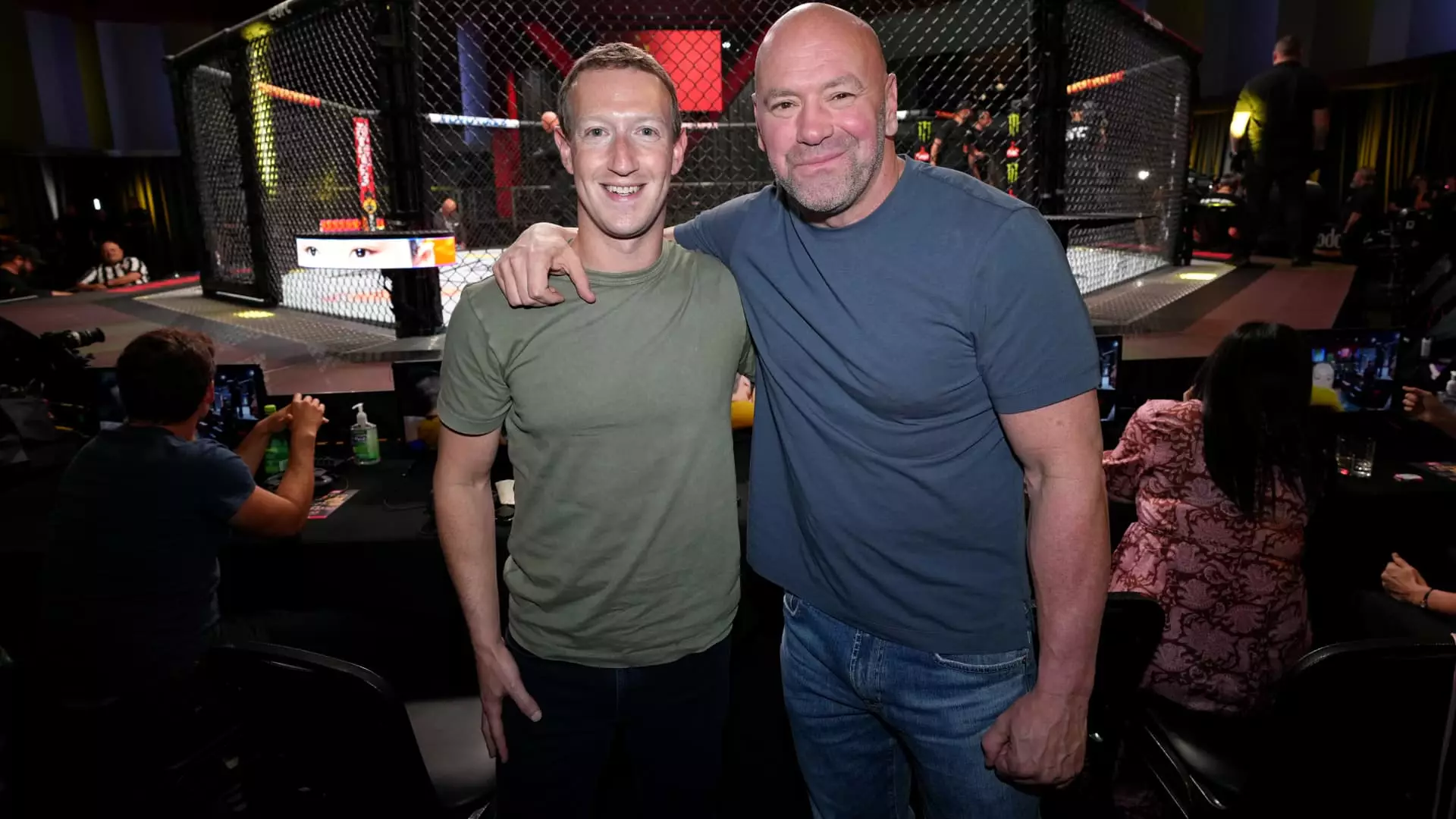In a surprising move that highlights the ever-blurring lines between sports, technology, and politics, Dana White, the stalwart CEO of the Ultimate Fighting Championship (UFC), has accepted a position on the board of Meta, the parent company of Facebook. This appointment comes just weeks before the inauguration of President-elect Donald Trump, a longtime ally of White. The implications of this decision stretch far beyond the boundaries of a typical corporate appointment and signal a fascinating intersection of various powerful spheres.
Dana White’s relationship with Donald Trump has always been robust, as evidenced by his vocal support during election season. White’s appearance with Trump during the election night festivities underscored a mutual admiration that goes beyond mere business. His declaration of Trump as “the most resilient hardworking man” he has encountered paints a vivid picture of their camaraderie. This friendship raises questions about the influence of such relationships on business strategies and public perceptions, particularly in the wake of a politically charged era in the United States.
The UFC has transformed under White’s leadership, evolving from a niche sports organization into a global powerhouse. This transformation is notable especially given the contrasting environments of politics and sports, where supporters often become embroiled in the contentious disputes that mark their respective arenas. White’s ascension to the board of Meta further complicates this dynamic, suggesting a corporate strategy that aligns more closely with populist sentiments rather than traditional tech industry approaches.
Mark Zuckerberg, CEO of Meta, has expressed genuine enthusiasm for martial arts and especially for the UFC, a fact that adds a fascinating layer to the corporate narrative. Zuckerberg’s journey into the realm of mixed martial arts, evidenced by his attendance at UFC events and his recent training for a competitive fight, shows that he is embracing a culture that is often disconnected from the tech industry. This mutual connection to the UFC may very well serve as a foundation for future collaborations, blending elements of technology with sports entertainment.
The public debut of Zuckerberg and White’s professional collaboration coincides with moments of high drama, such as the speculation between Zuckerberg and Elon Musk regarding a potential fight. While this rivalry was eventually dismissed, it reflects the playfulness yet competitive nature prevalent among these tech titans. Such developments invite greater engagement from diverse audiences, merging entertainment, technology, and sports in ways that could redefine public interaction with these spaces.
Notably, White’s history is marred by controversies, including instances of personal misconduct, which became highly publicized after an incident on New Year’s Eve that involved his wife. While he issued apologies and reframed the incident as isolated, the implications of such controversies on his role at Meta cannot be ignored. As public sentiment increasingly emphasizes corporate responsibility and ethics, it remains to be seen how much these personal transgressions will weigh on Meta’s reputation moving forward.
The broader context of Zuckerberg’s decision to bring White onto the board also invites scrutiny. With a landscape continually focused on issues of diversity, equity, and corporate governance, observers of Meta will be keen to assess whether this choice aligns with the company’s stated goals or distracts from them. The juxtaposition of White’s colorful persona and Zuckerberg’s somewhat reserved public image creates a juxtaposition that will attract both scrutiny and fascination.
As Meta stands poised to tackle mass technological advancements in AI, wearables, and social media, the addition of individuals like White alongside others with significant expertise can provide enhanced perspectives. His entrepreneurial acumen may prove to be a catalyst for fresh ideas that enable the company to innovate in ways that engage both fans of sports and technology alike.
Thus, White’s new role within the tech giant acts not only as a strategic maneuver but also as a barometer for how sports and entertainment are perceived in an increasingly digitized world. As Meta attempts to navigate through its ambitious vision, the collaborative possibilities between these spheres offer enticing prospects for the future, promising a convergence that could redefine consumer interaction, engagement, and loyalty in the years ahead.


Leave a Reply